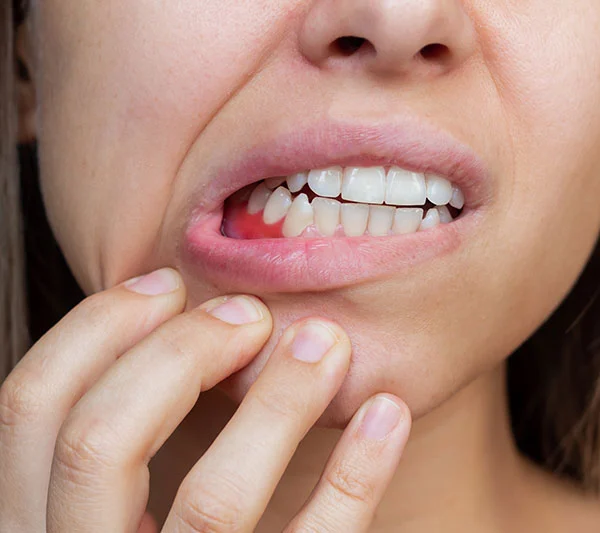Gum disease treatment can be difficult to determine, as there are many potential causes and contributing factors. Treatment options may include a combination of non-surgical and surgical procedures, depending on the specific condition. Non-surgical treatments may include deep cleaning or scaling and root planing to remove plaque and tartar from the teeth and gums, antibiotics to treat infection, or special mouth rinses or toothpaste.

Gum disease, also known as periodontal disease, is a serious infection that can damage the gums and bone that support teeth. Left untreated, gum disease can lead to tooth loss. It's important to treat gum disease because it can cause pain, inflammation, and bad breath. Untreated gum disease can also increase your risk of developing other health problems, such as heart disease and diabetes. Magnum Clinic has the best gum specialist doctor for gum recession, bleeding, and bleaching treatment.
The procedure generally includes a deep cleaning, which helps to remove plaque and tartar from your gums. This can help to improve gum health and reduce the risk of gum disease. Gum treatment may also include the use of antibiotics or other medications to help improve gum health.
If gum disease is left untreated, it can lead to tooth loss, gum bleeding and other health problems. Gingivitis, the mildest form of gum disease, can be reversed with good oral hygiene practices. However, if gingivitis is left untreated, it can progress to periodontitis, a more serious form of the disease. Periodontitis can lead to tooth loss and other health problems. So don’t ignore it; consult with Magnum Dental Clinic in Dubai nearby you for gum disease treatment.
Practising daily oral hygiene, including brushing, flossing, and using an antiseptic mouthwash, is crucial for preventing gum disease. It is advisable to use toothpaste containing fluoride and replace toothbrushes every one to three months. A balanced diet is essential for promoting healthy gums and teeth. It is important to minimise the consumption of sugary foods and beverages, as they promote bacterial adhesion and plaque accumulation. To reduce inflammation, drinking an ample amount of water stimulates salivary production, diluting toxins from plaque. Regular dental visits and examinations aid in identifying and addressing potential infections, while advanced stages of the disease may require more extensive treatments.
The three most common types of gum diseases are gingivitis, periodontitis, and periimplantitis. Gingivitis is a mild form of gum disease that causes inflammation and redness in the gums. If left untreated, gingivitis can develop into periodontitis, a more serious form of gum disease that damages the tissues and bones that support teeth. Periimplantitis is a form of gum disease that affects dental implants.
Following a periodontal treatment, it is important to maintain good oral hygiene habits to ensure the treated area heals properly. Patients should brush their teeth at least twice a day and floss once a day. They should also avoid biting on hard objects, such as ice, and rinse their mouths with salt water or mouthwash. If patients experience any pain or swelling following treatment, they should contact their dentist.
Gum disease treatment in Dubai can vary in price, depending on the severity of the problem and what procedures are necessary to treat it. In some cases, a simple deep cleaning may be all that is required, while more complicated procedures such as surgery or bone grafting may be necessary for more severe cases.
Looking for a dental clinic near me? From routine check-ups to advanced treatments, our dental specialists are dedicated to providing exceptional dental care in Dubai.
















